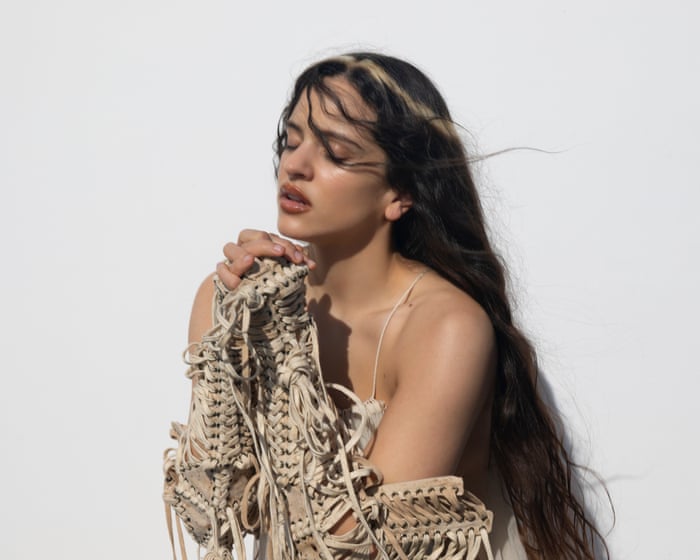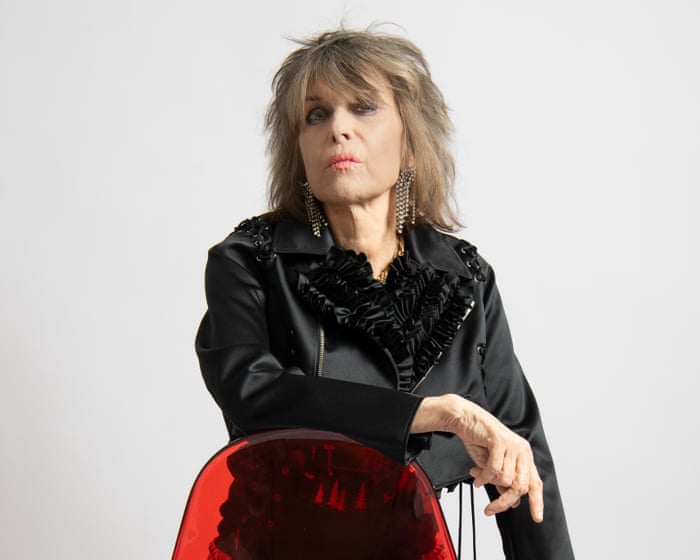Last week, Rosalía appeared on a US podcast to talk about her fourth album. At one point, the interviewer asked if she didn’t think Lux was asking a lot from her listeners—a fair question, considering it’s a song cycle in four parts based on the lives of female saints, features the 33-year-old Catalan star singing in 13 languages, and is backed by the powerful sound of the London Symphony Orchestra. It also sounds nothing like her previous album, 2022’s Motomami. “Absolutely,” she replied, describing Lux as a response to the quick dopamine hits of scrolling through social media—something that requires real focus.
Rosalía didn’t seem too concerned about making demands on her audience, which is somewhat surprising. Pop music today often feels designed for ease, asking as little as possible from listeners, almost as if streaming algorithms—which constantly suggest new music similar to what you already like—are shaping artists’ careers. But Rosalía has a history of challenging her fans: Motomami blended reggaeton, hip-hop, dubstep, dembow, and experimental electronics, marking a sharp turn from her 2018 breakthrough, El Mal Querer—a pop reinterpretation of flamenco that began as her college project.
It’s telling that the most notable guest on Lux is Björk, whose distinctive voice appears on “Berghain,” weaving through orchestral arrangements, Rosalía’s operatic singing, and Yves Tumor repeatedly quoting Mike Tyson’s line, “I’ll fuck you ’til you love me.” It’s hard not to see Björk as a kindred spirit or role model for Rosalía—an artist who has built a decades-long career on bold artistic shifts within a polished aesthetic.
Still, the change from El Mal Querer to Motomami is minor compared to the leap to Lux. Both earlier albums were pop, though highly adventurous. Now, there’s debate over whether Lux qualifies as classical music—a question even Rosalía seems unsure about. On the waltz-time track “La Perla,” a dramatic orchestral swell is followed by her giggling, as if to downplay any pretension. Whether you call it classical or not, Lux sounds closer to that genre than anything on the charts.
Pop elements do appear: Auto-Tune alongside Bernard Herrmann-inspired strings, rolling kettledrums, and flamenco handclaps in “Porcelana”; rapping on “Novia Robot”; melodies that could fit in more familiar settings, like the lovely “Sauvignon Blanc”; and sped-up vocal samples, usually found in hip-hop or house music, used here as part of an overwhelming sonic assault in “Focu ‘Ranni.” But these elements feel secondary, like ghostly presences drifting through an unfamiliar landscape.
So Lux asks listeners to let go of expectations and embrace the artist’s vision. That’s a big request. It’s a long album, and its overarching story is hard to follow, even with a lyric sheet that translates sudden switches between Spanish, Mandarin, Ukrainian, Latin, and more. Still, you get the feeling that somewhere…Amid themes of God, Catholicism, beatification, and transcendence lies a more down-to-earth subject: an ex-boyfriend getting his comeuppance. In the song “La Perla,” characteristic lines sung in Spanish call him a “gold medal in being a motherfucker,” an “emotional terrorist,” and a “world-class fuck-up.”
But the truth is, you don’t need to understand everything to find “Lux” a deeply engaging and compelling experience. The songs are consistently beautiful, filled with striking moments—like in “Reliquia,” where a Michael Nyman-esque string arrangement suddenly merges with a frantic, glitchy rhythm reminiscent of Aphex Twin’s take on drum ‘n’ bass. There’s the whirlpool of strings and wordless vocals at the end of “Jeanne,” and the dramatic orchestral surge and key change midway through “De Madrugá.” Meanwhile, Rosalía’s vocal performances are spectacular displays of talent, showcasing her versatility whether singing alongside fado artists in “La Rumba del Perdón,” rapping, or belting as if on stage at the Royal Opera House. Despite their technical skill, her vocals carry an emotional rawness that counters any notion that “Lux” is merely an arid intellectual exercise. Whatever effort went into its creation—from learning languages to enlisting Pulitzer Prize-winning composer Caroline Shaw for arrangements—the album is too dramatic to feel like just the answer to a clever hypothesis.
It may also be too different and challenging to achieve the mass acceptance of “Motomami” and “El Mal Querer,” though the global streaming success of “Berghain” suggests otherwise—and that’s genuinely uplifting. In a world where listeners are increasingly encouraged to lean back and let algorithms and AI do the work, it would be heartening to see people embrace an album that asks the opposite. If you put effort into appreciating “Lux,” it pays off—a lesson worth noting.
Frequently Asked Questions
Of course Here is a list of FAQs about Rosalías Lokera framed in a natural tone with clear direct answers
General Beginner Questions
1 What is Lokera and who is it by
Lokera is a reggaeton song by the Spanish artist Rosalía released in 2022 as part of her album Motomami
2 What does Lokera even mean
Lokera is a slang term that roughly translates to a woman who drives me crazy or a crazy girl referring to an intense captivating attraction
3 Ive never heard of Rosalía What kind of music does she make
Rosalía is known for blending traditional Spanish flamenco with modern genres like pop reggaeton and electronic music creating a unique and often experimental sound
4 Who are the other artists featured on the track
The song features two Puerto Rican artists Tokischa an innovative rapper known for raw dembowinfluenced music and Rauw Alejandro a popular reggaeton and pop singer
About the Music Style
5 What makes Lokera sound so different from other reggaeton songs
While it has a classic reggaeton beat Rosalía mixes in chaotic elements like distorted bass unconventional sound effects and her signature flamencoinspired vocal inflections creating a blend of the familiar and the experimental
6 Can you give an example of the classical and chaotic blend in the song
Yes The foundation is a clean classic reggaeton rhythm but its layered with gritty distorted basslines sharp electronic noises and raw unfiltered vocals from Tokischa
7 What is Rosalías vocal style like in this song
She switches between a smooth melodic singing voice and a more rhythmic almost spokenword delivery often adding the characteristic flourishes and cries from flamenco
8 Why did she collaborate with Tokischa
Tokischa is known for her avantgarde and boundarypushing approach to dembow music which perfectly aligned with Rosalías goal of creating a challenging and unique track that



